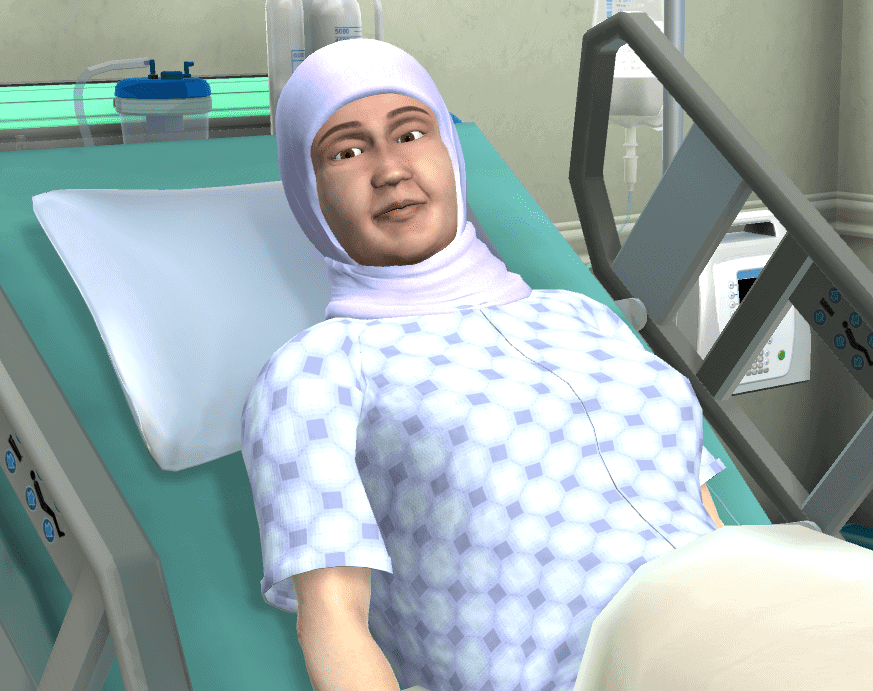Shadow Health Assignments

Fatima Khan Shadow Health Assessment
In a Medical-Surgical DCE, students encounter Fatima Khan, a 44-year-old woman with type 1 diabetes who is awaiting surgery to remove her gallbladder. Before the operation, students learn about providing healthcare for Muslim patients like Fatima. This includes understanding their dietary needs, respecting their modesty and privacy, being mindful of touch boundaries and consent, and considering restrictions on substance use.
To create Fatima’s character, the Shadow Health team researched how to best represent South Asian and Muslim patients in hospital settings. They found that Muslim women often feel misunderstood or judged by healthcare providers, especially when it comes to issues of modesty and clothing. To ensure Fatima’s comfort, she wears her hijab during the surgery since it doesn’t interfere with the operation area.

Struggling to meet your deadline?
Get your assignment on Fatima Khan Shadow Health Assessment done by certified MDs and PhDs in the USA. ORDER NOW!
During the simulation, students interact with Fatima, asking her questions and observing her condition. They must also be alert to any changes in her health status. In this scenario, Preceptor Diana stays in the room to honor Fatima’s request for a female healthcare provider. Using their medical knowledge and critical thinking skills, students develop a care plan tailored to Fatima’s cultural needs, ensuring she receives safe and respectful treatment.
Chelsea Warren Focused Exam: Type 1 Diabetes Shadow health Documentation
Fatima Khan Shadow Health Assessment
In a Medical-Surgical DCE (Digital Clinical Experience), students are introduced to Fatima Khan, a 44-year-old woman with type 1 diabetes who is awaiting a laparoscopic cholecystectomy, a surgical procedure to remove her gallbladder. This simulation provides students with an opportunity to learn about and practice providing healthcare for Muslim patients like Fatima. The focus is on understanding and addressing specific cultural considerations that may be important for patients from Muslim backgrounds, such as dietary requirements, considerations of modesty and privacy, boundaries regarding touch and consent, and restrictions on substance use.
To accurately portray Fatima’s character and ensure the simulation reflects real-world experiences, the Shadow Health team extensively researched published literature and best practices related to the care of South Asian and Muslim patients in hospital settings. This research revealed that Muslim women, in particular, often face challenges in healthcare settings, including feelings of being misunderstood or judged by healthcare providers, especially in relation to issues of modesty and attire.
In response to these findings, the team made efforts to incorporate Fatima’s cultural needs into the simulation. For example, recognizing that Muslim women may have specific preferences regarding clothing and modesty, Fatima is depicted wearing her hijab during the surgery. This decision aligns with the understanding that the hijab does not obstruct or interfere with the surgical site, thereby respecting Fatima’s religious and cultural beliefs while ensuring her safety and comfort during the procedure.
During the simulation, students engage in various interactions with Fatima, including interviewing her to gather medical history and assessing her current health status. They are also challenged to recognize any changes in her condition and respond accordingly. Additionally, the presence of Preceptor Diana during the patient assessment reflects Fatima’s request for a healthcare provider of the same gender, highlighting the importance of respecting patients’ preferences for culturally sensitive care.
Using their clinical reasoning skills, students work to develop a culturally appropriate care plan tailored to Fatima’s specific needs and preferences. This involves considering not only her medical condition but also her cultural background and religious beliefs, ensuring that the care provided is both safe and respectful. Through this immersive learning experience, students gain valuable insights into providing patient-centered care that respects and accommodates diverse cultural perspectives.
Fatima Khan Shadow Health Assessment
In a Medical-Surgical DCE, students meet Fatima Khan, a 44-year-old type 1 diabetic who is pre-operative and awaiting a laparoscopic cholecystectomy. As part of this simulation, students practice healthcare considerations that may be important to Muslim patients, including diet, modesty and privacy, touch restriction and consent, and substance use restriction.
To develop Fatima’s character, the Shadow Health team drew upon published research and best practices for South Asian/Muslim patients in hospital settings. Muslim women in particular report provider bias, and a lack of sensitivity or understanding around concepts of modesty and dress. To accommodate Fatima’s needs and because the hijab does not obstruct or interfere with the surgery site, Fatima wears her hijab during the operation.
Students interview the patient and are challenged with recognizing a change in patient status. In this simulation, Preceptor Diana remains present in the room during the patient assessment to fulfill the patient’s request of having a same-gender provider present. Using clinical reasoning to implement safe, effective, patient-centered care, the students create a culturally appropriate care plan for Fatima.

Dont wait until the last minute.
Provide your requirements and let our native nursing writers deliver your assignments ASAP.
Simulation in Shadow Health
- Undergraduate DCE: Medical-Surgical DCE